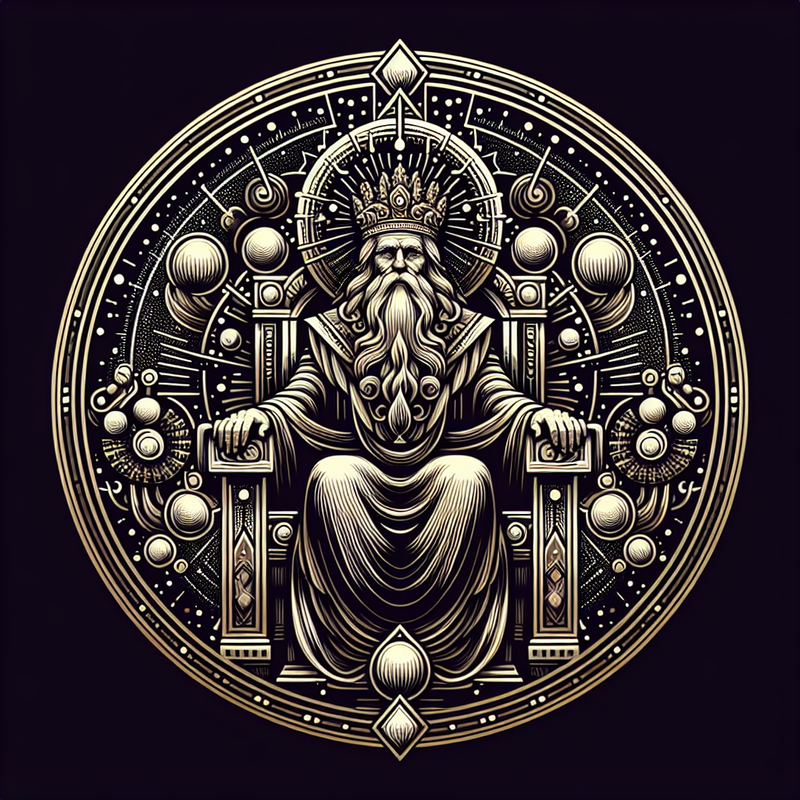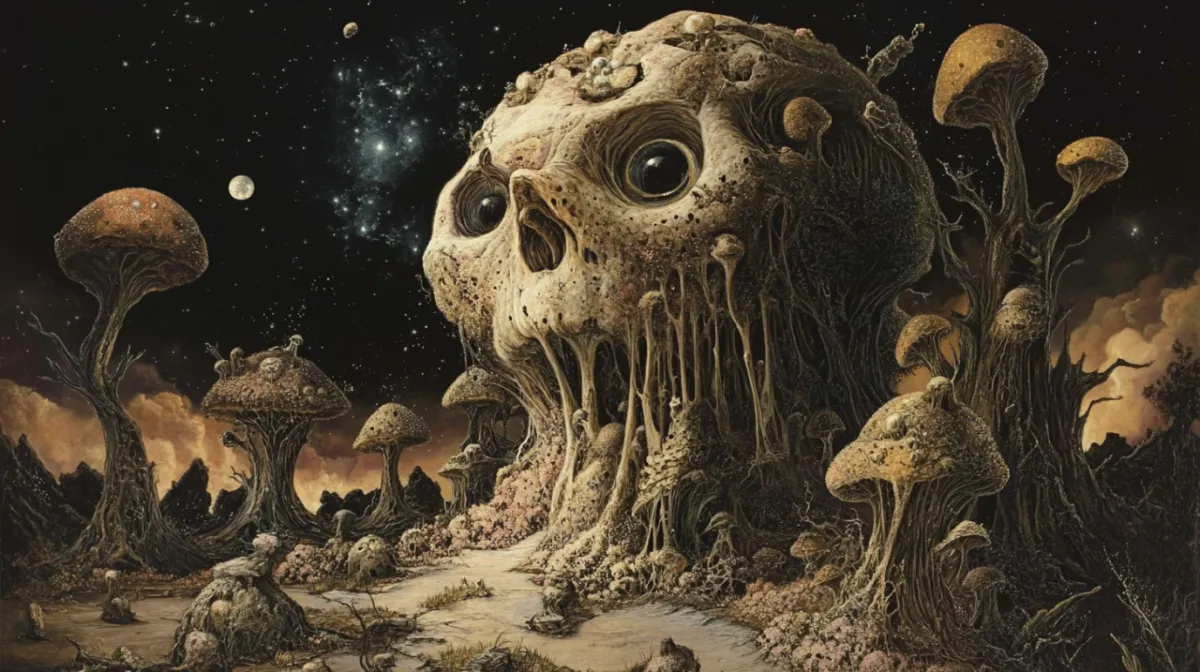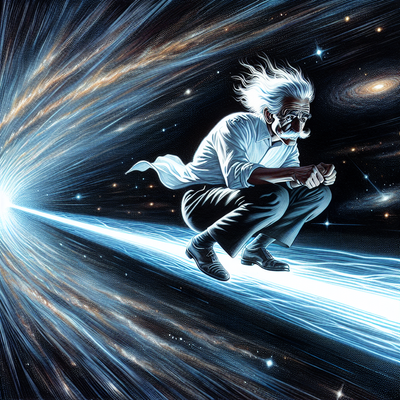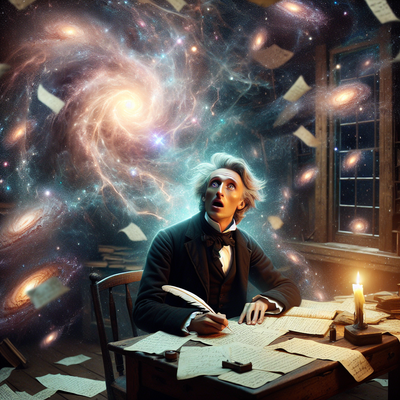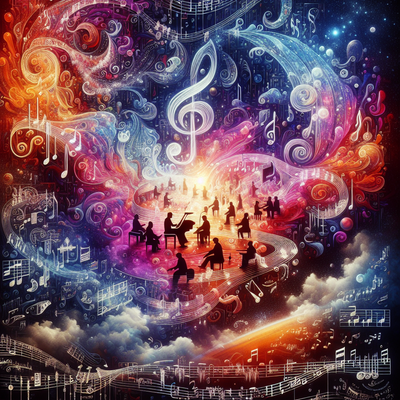Who the Hell is... God?
God—the ultimate figure in the universe, who’s been the subject of countless debates, prayers, and a fair bit of eye-rolling. You know, the one who allegedly created everything from the stars to notary publics, black holes to your annoying neighbor.
Every happening, great and small, is a parable whereby God speaks to us, and the art of life is to get the message. — Malcolm Muggeridge
Imagine the universe as the most intricate Pinterest board ever conceived—only it’s not a collection of DIY disasters; it’s a masterpiece in motion. God is often viewed as the cosmic artist, the grand designer who sculpted everything from the swirling galaxies to the intricate details of human life. The creativity of this ultimate creator knows no bounds, inspiring awe in every living being.
I believe in God, only I spell it Nature. — Frank Lloyd Wright
God is the embodiment of power. Need a miracle? Just ask! But here’s the catch: divine schedules are busy, and your prayer might just get lost in the cosmic inbox. As one comedian quipped, “I prayed for a bicycle. Then I realized God doesn’t work like that, so I stole a bike and asked for forgiveness.” Divine intervention isn’t always on demand.
If you want to make God laugh, tell him about your plans. — Woody Allen
Picture this: God knows everything—your deepest secrets, your hidden fears, and yes, that cringeworthy moment from last summer. There’s no hiding from this divine being. The weight of omniscience can feel both comforting and terrifying. It’s like having an all-knowing ex-girlfriend who never forgets a single detail. It's your job not to have details that can get you canceled by a higher thought-power.
The function of prayer is not to influence God, but rather to change the nature of the one who prays. — Søren Kierkegaard
God is often portrayed as the ultimate good, wrapped in love and light. Yet, let’s be honest—life can throw some serious curveballs. Sometimes it feels like the divine has a wicked sense of humor, especially when you step on a Lego in the dark.
In the beginning, the universe was created. This has made a lot of people very angry and been widely regarded as a bad move. — Douglas Adams
Who is God to you? For many, God is a personal friend, a guiding light in the chaos of life. In monotheistic traditions like Christianity, Judaism, and Islam, God is very much a personable figure, interested in your journey. Yet, in some Eastern philosophies, God resembles a vague concept—a universal force giving you a nod and a wink, leaving you to navigate the mysteries of existence on your own.
Science without religion is lame, religion without science is blind. — Albert Einstein
From Zeus hurling lightning bolts to the rich tapestry of Hindu deities, humanity’s vision of God is as diverse as our favorite pizza toppings. Each culture crafts its own flavor of divinity, showcasing the incredible variety of how we seek to understand the universe. Who knew that the divine could be so customizable?
Your talent is God's gift to you. What you do with it is your gift back to God. — Leo Buscaglia
Philosophers have been wrestling with the existence of God for centuries, pondering questions like "Does God exist?" and "Why the hell does... suffering exist?" Spoiler alert: there are no easy answers. The quest for understanding the divine often leads us down winding paths of inquiry, challenging our beliefs and assumptions.
We are not human beings having a spiritual experience; we are spiritual beings having a human experience. — Pierre Teilhard de Chardin
God is a cosmic creator, a keeper of secrets, and a source of endless mystery. Whether you view God as a personal deity or an impersonal force, the concept of God invites a blend of awe, skepticism, and a touch of sass. After all, the divine can be downright entertaining—just look at the world we inhabit. Scary, and it deserves protection.
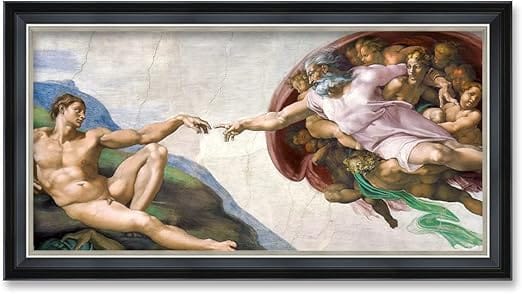
For my articles in this series, visit or bookmark the following;
Brent Antonson: Where Extraordinary Recall Sparks Insight.

